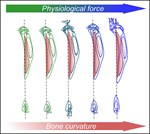Search - Research
171 - 180 of 241 results
-
Overview
The Veterinary Companion Animal Surveillance System (VetCompassTM) is an initiative focused on improving companion animal health. -
Countries Agree on Actions to Help Save Saiga Antelopes
Saiga Range Countries and Experts Convene in Tashkent Following Saiga Mass Mortality EventSaiga Range Countries and Experts Convene in Tashkent Following Saiga Mass Mortality Event …
-
Initiatives to control and eliminate parasitic disease are reaching targets earlier than projected
Data, analysed by researchers, from nine national schistosomiasis control programmes, identified that the majority of initiatives acrosssub-Saharan Africa and Yemen have reached the disease-control target by two treatment rounds or lessNew data, analysed by a group of leading researchers, from nine national schistosomiasis control …
-
How curved are your bones? RVC study finds smart bones curve to protect against fracture
How curved are your bones? RVC study finds smart bones curve to protect against fractureBone adaptation to physiological forces at the organ level is not related to local mechanical …
-
Vets working with Medics to find solutions for the COVID-19 crisis
Members of the One Health Poultry Hub, including two experts from the RVC, are helping to guide the world's recovery from this latest zoonotic disease crisis.The latest blog post from Fiona Tomley, The Director of the One Health Poultry Hub explains how …
-
The UK’s largest ever feline dental disease study identifies age and breed as biggest risk factors
New research from the Royal Veterinary College (RVC) has shed light on the frequency, risk factors and linked health problems associated with periodontal disease in pet cats in the UK. These findings will help veterinary practitioners and owners … -
World first, RVC finds cognitive impairments in dogs with epilepsy
A series of pioneering research studies from the Royal Veterinary College (RVC) into dogs with epilepsy have revealed that: Dogs with epilepsy find it harder to obey commands, are slower to learn new tricks, have spatial memory deficits and are easily distracted. Aversive training methods, such as bark-activated collars, prong collars and verbal punishment are associated with poor trainability and their use should be avoided. Some anti-epileptic drugs (the medications commonly used to treat seizures) were found to worsen the cognitive impairment of dogs with epilepsy. Dogs with greater exposure to training activities, including obedience classes, agility, and gun-dog training, were found to be associated with higher trainability and have fewer signs of cognitive dysfunction.You can’t teach epileptic dogs new tricks? A series of pioneering research studies from the Royal …
-
The pawfect storm: study finds high levels of problem behaviours and use of aversive training methods in pandemic puppies
The average number of owner-reported problem behaviours among ‘pandemic puppies’ was five, with problem behaviours more likely in owners using aversive training techniques, says the Royal Veterinary College Four in five (82%) ‘pandemic puppy’ …The average number of owner-reported problem behaviours among ‘pandemic puppies’ was five, with …
-
New research from the RVC on India’s antibiotic regulation identifies framework for policy development in livestock
The Royal Veterinary College (RVC) has led novel research on India’s 2019 ban on the use of colistin in livestock, providing a framework to approach the regulation of other critically important groups of antibiotics being used in livestock. …The Royal Veterinary College (RVC) has led novel research on India’s 2019 ban on the use of …
-
New Petplan award to Dr David Connolly, Professor Brian Catchpole, Dr Jay Dudhia (RVC) and Hannah Hodgkiss-Geere (Liverpool Vet School)
Dr David Connolly, Professor Brian Catchpole, Dr Jay Dudhia (RVC) and Hannah Hodgkiss-Geere (Liverpool Vet School) has been awarded a grant by Petplan Charitable Trust for a project called: "Avoid rejection to fix a broken heart: assessing the …Dr David Connolly, Professor Brian Catchpole, Dr Jay Dudhia (RVC) and Hannah Hodgkiss-Geere ( …









